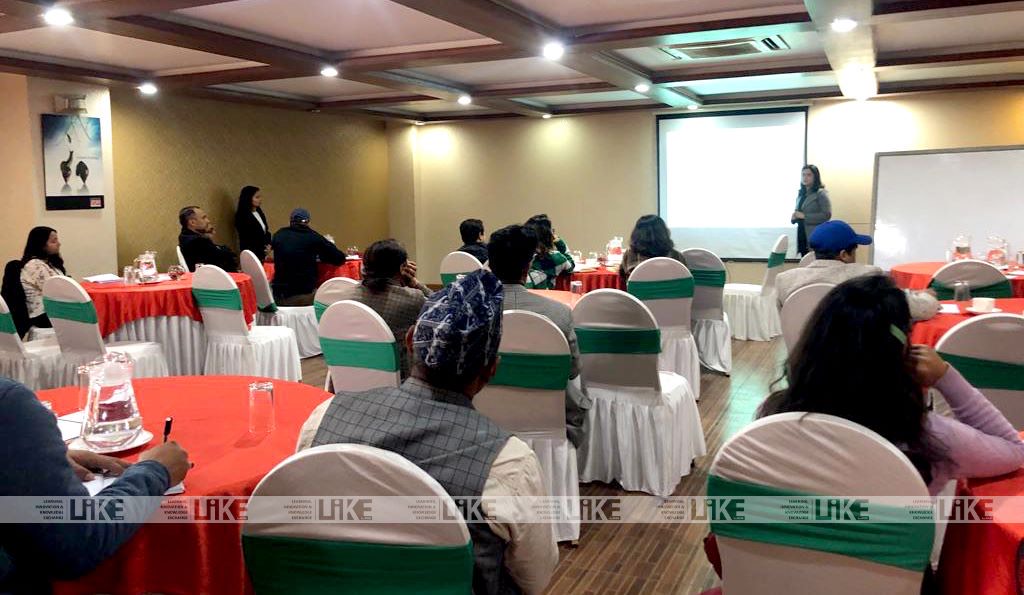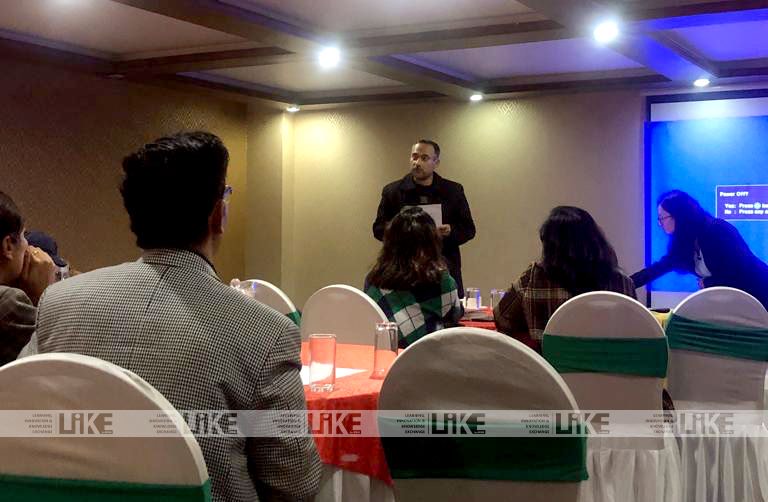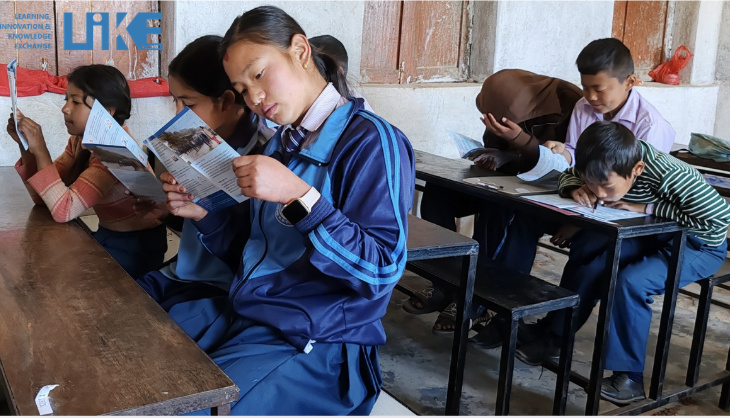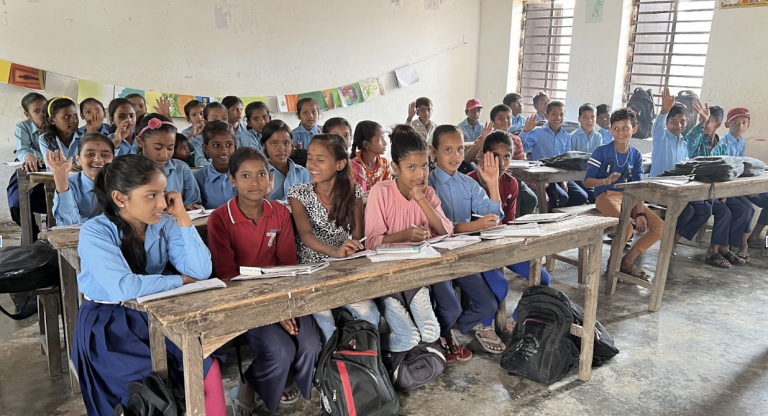
Aurthor : Regina Rajbansi & Situ Shrestha
Education is an essential index of human development that determines the socio-economic progress of human societies, whereas Nepal still has numerous challenges and insufficiencies in the education sector, such as low literacy rates, inadequate infrastructure, and a shortage of trained teachers and school supplies. And to overcome these deficiencies within the education system of Nepal, there are various organizations tirelessly implementing educational interventions to improve the quality of education and transpose educational practices to be more inclusive. Here are some prominent educational interventions that have been deployed by non- governmental organizations (NGOs), international non-governmental organizations (INGOs), and social ventures in Nepal.
Aasaman Nepal has been implementing the “Promotion of Girls and Inclusive Education Network (GIEN), an intervention to help communities reduce harmful traditional practices like early marriage and also lobbying with the local government and schools to get students who are
at risk of dropping out back to school. The organization has been fully mobilizing GIEN for inclusive education and equitable access to retention through a major focus on three areas: a) harmful norms transformation; b) gender responsive and inclusive education; and c) life skills
and successful transition. The transformation of harmful norms is carried out through community sensitization, active engagement of opinion leaders, and gender-responsive policy reform.
Likewise, to ensure gender-responsive and inclusive education, the intervention adopts gender- and disability-responsive pedagogy. The interventions that are implemented also strengthen the capacity of teachers, students, and management, thereby providing a safe learning environment. In addition, life skills and a successful transition are ensured through mentoring, coaching, and peer support, strengthening leadership quality and climate change resilience.
The other organization that has been working to promote innovation and creativity in education is Karkhana. The organization recognizes that traditional methods of education may not be effective or engaging for all learners, and they aim to support initiatives that promote hands-on, experiential learning and encourage students to think creatively and critically. The organization has been running many initiatives, among which four programs support both students and teachers with science, technology, engineering, and mathematics (STEM) education. Those programs are: a) Novel Engineering; b) Karkhana Make; c) STEM for School; and d) Karkhana Science. The objective of these programs is to help students learn creative skills in subjects of interest such as gaming, robotics, animation, and crafts. Also, the organization has been working with schools and educators to introduce new teaching methods and technologies that promote creativity and innovation. They organize various workshops and training sessions for teachers to help them incorporate hands-on, project-based learning into their classrooms.

Similarly, Street Child of Nepal is implementing an intervention, “Teaching at the Right Level (TaRL): Recovering Learning Losses, in five different districts of Nepal: Dhading, Dhanusha, Salyan, and Kapilvastu, with a total of 104 schools covered. TaRL works in four domains, which are: a) assessment, data recording, and grouping. Under this domain, simple one-on-one assessment is done to group children by level instead of by grade for instruction. b) Activities and Teaching Learning Materials, which is the second domain, include activities such as a set of activities and materials for reading and arithmetic that are appropriate according to the group and are provided that enable children to progress. c) Lesson planning and class management; the third domain includes children doing activities in groups and also individually. They progress quickly and move into the next level group. d) Monitoring and Mentoring, the fourth domain, includes assessments that are used for tracking children’s progress and formalizing grouping.
Furthermore, an international organization, Save the Children Nepal, is promoting access to quality education for children in Nepal with education-related programs and activities such as early childhood development, basic education, literacy and numeracy, and school infrastructure. In addition to these initiatives and amid the pandemic, Save the Children Nepal has been working on several learning recovery projects that support children’s participation and educational rights. These learning recovery programs provide support for remedial education programs, teacher preparation, and the creation of learning resources for those children who had discontinued their schooling during pandemic. Together with this, the organization also works to ensure that children’s opinions are taken into account when it comes to formulating educational policy and planning. Overall, Save the Children Nepal’s work in education is focused on improving access to education and the quality of education being provided to children in Nepal
to ensure that all children have the opportunity to reach their full potential.
Lastly, ASER (Annual Status of Education Report) Nepal, a citizen-led initiative, aims to evaluate the status and quality of education provided to students, encourage improvements in teaching and learning practices, and conduct annual surveys of learning outcomes in different
districts of Nepal. ASER Nepal has taken part in several education-related projects, such as campaigns to encourage girls’ education, early childhood education programs, and initiatives to increase access to education for marginalized communities. The project “South Asian Assessment Alliance: Communicating and Collaborating for Change,” undertaken by ASER Nepal/Galli Galli, is implementing different initiatives to improve the quality of education in Nepal. This project is also supported by the Global Partnership for Education (GPE) under Education Out Loud (EOL) OC3 and led by Street Child UK, and it is being implemented in Afghanistan, Bangladesh, Myanmar, and Nepal. The project aims to establish a transnational alliance of actors to manage educational budget allocations and activities with efficacy and efficiency, ensure equitable education for the majority of marginalized children and communities, increase engagement with evidence to enact and embed evidence-informed policies, and increase accountability towards transnational targets in education, including the Education 2030 Framework for Action and SDG.
In this study, the mapping of educational interventions has been developed on the basis of knowledge sharing, interactions, discussions, and deliberations that took place during the Knowledge Exchange event, “Educational Programs, Interventions, and Practices: Exploring Pathways to Strengthen Inclusive Accessibility of Rural Public Education,” which took place on February 28, 2023. The event was organized by the Learning, Innovation, and Knowledge Exchange Lab at Kathmandu University School of Arts (KUSOA), which is an output of the project “Effectiveness and Scalability of Programs for Children Who Are Out of School and at Risk of Dropping Out in Bangladesh, Bhutan, and Nepal.” The Learning, Innovation, and Knowledge Exchange Lab has been established with the support of the Global Partnership for Education Knowledge and Innovation Exchange (GPE KIX) and the International Development Research Center (IDRC).
Moreover, it is important to appreciate and recognize the fact that, in spite of contextual challenges and socioeconomic barriers, educational interventions initiated by different non- government organizations and social ventures in Nepal have significantly contributed towards
improving access to quality education and promoting equitable and inclusive education opportunities for all, and their educational interventions need to be sustained and supported by all the stakeholders in public education in Nepal.



